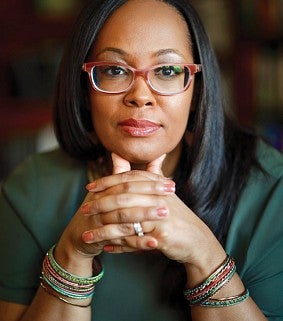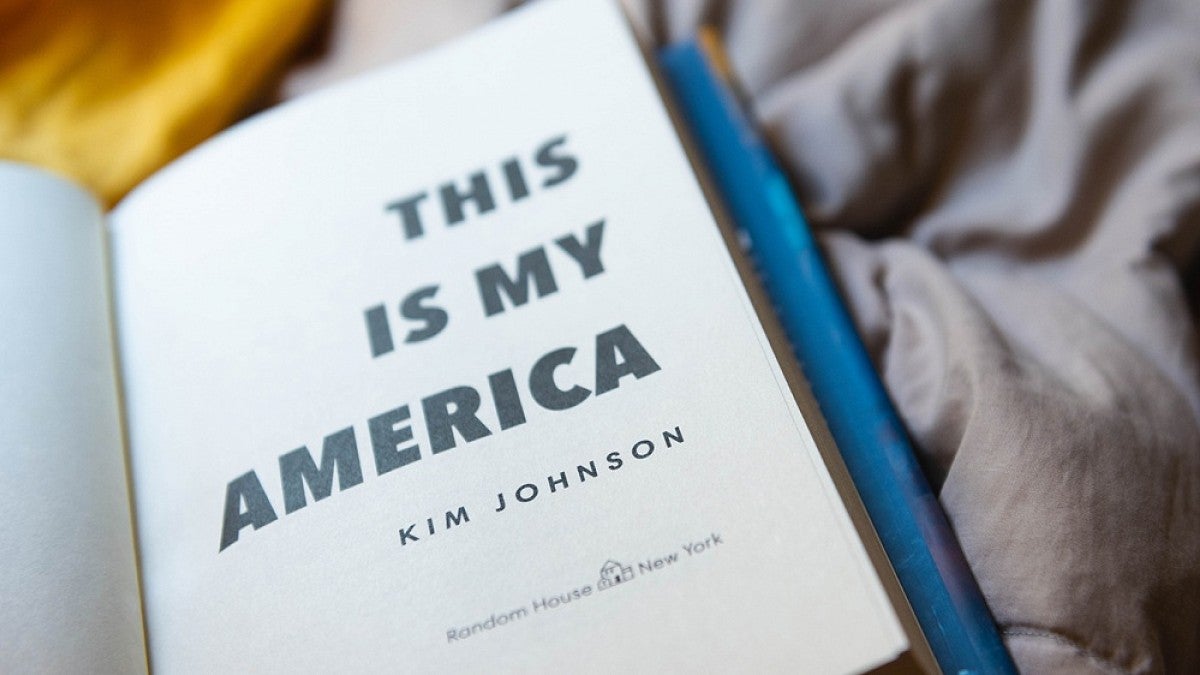A novel by a University of Oregon administrator that was chosen for UO’s 2020 Common Reading Program will be made into a television series to stream on HBO Max.
Kimberly Johnson, the UO’s vice provost for undergraduate education and student success, recently sold the rights to her award-winning book, “This is My America,” to film production company Picturestart of Los Angeles. Jessica Watson (“Pen15”) will write the script and Josh Schwartz and Stephanie Savage of Fake Empire Productions (“Gossip Girl”) will executive produce “This is My America,” streaming in the near future.
Johnson will also have an executive producer credit on the show, which she said is rare for a debut novelist who’s new to the industry. She’s “thrilled and honored” to be working with HBO Max.
“It made me really confident that whatever ended up being created with the adaption would be at a high quality,” Johnson said, “and the best representation of my story is really important.”
The novel follows 17-year-old Tracy Beaumont, a Black, Gen-Z high school student in Galveston, Texas, who lives and breathes social justice causes. She’s fighting for the attention of Innocence X, a criminal justice organization whose lawyers could save her father, on death row for a crime he didn’t commit.
She’s also leading “Know Your Rights” community workshops on law enforcement when her brother, a state track star, is accused of murdering a white classmate. In the sometimes harrowing, cinematic drama, Tracy is racing to clear her father’s name and prove her brother’s innocence at the same time.
“I grew up not having anything like this, not only in the realm of empowering activists and social justice issues but also detective and investigative stories, especially with a Black lead,” Johnson said. “I still don't have that as an adult, and so when it came time to choose between film and television, a series was top of my list to represent my work.”
Johnson’s own involvement with social justice growing up in Eugene inspired parts of Tracy’s character. She was president of Eugene’s NAACP Youth Council and various organizations in college, and she said practical lessons from that activism and student leadership involvement inform her work today in advising and higher education.
“When you do social justice work, you're not satisfied with the status quo,” Johnson said. “Tracy is someone who is the antithesis of ‘we've always done it that way.’ She explores possibilities beyond what is there, and I see that in my leadership. Our students are always changing, and as an institution we have to adapt if we want to better serve them.”

Johnson has seen the book inspiring young people to activism here on the UO campus.
“Even if they're not necessarily focusing on the racial and social climate,” she said, “they recognize their voice is powerful in whatever they're very passionate about, and there are ways in which you can make change.”
Curriculum based on the book is already being taught in middle and high schools around the country, and the screen adaption of “This is My America” has the potential to invite an even bigger audience.
“My hope would be that it’s a show that reaches a broad audience, even teens watching it with their parents and having conversations,” Johnson said.
To her, the power of the screen is helping viewers empathize with the range of characters and lived experiences she depicts in the book. Especially over a full season, she said, “you can actually spend a lot of time with different characters in each episode in a way that you can't just reading the book.”
“It makes it even easier to imagine their lives and for anyone to see themselves in someone else,” Johnson said. “And my hope is that when people read the book, and as the TV series comes out, that it gets more people to be aware of the flaws within our criminal justice system and think creatively about like, wow, you know, this does happen, this is a systemic issue that disproportionately impacts certain communities, all the time.”
—By Anna Glavash Miller, University Communications


